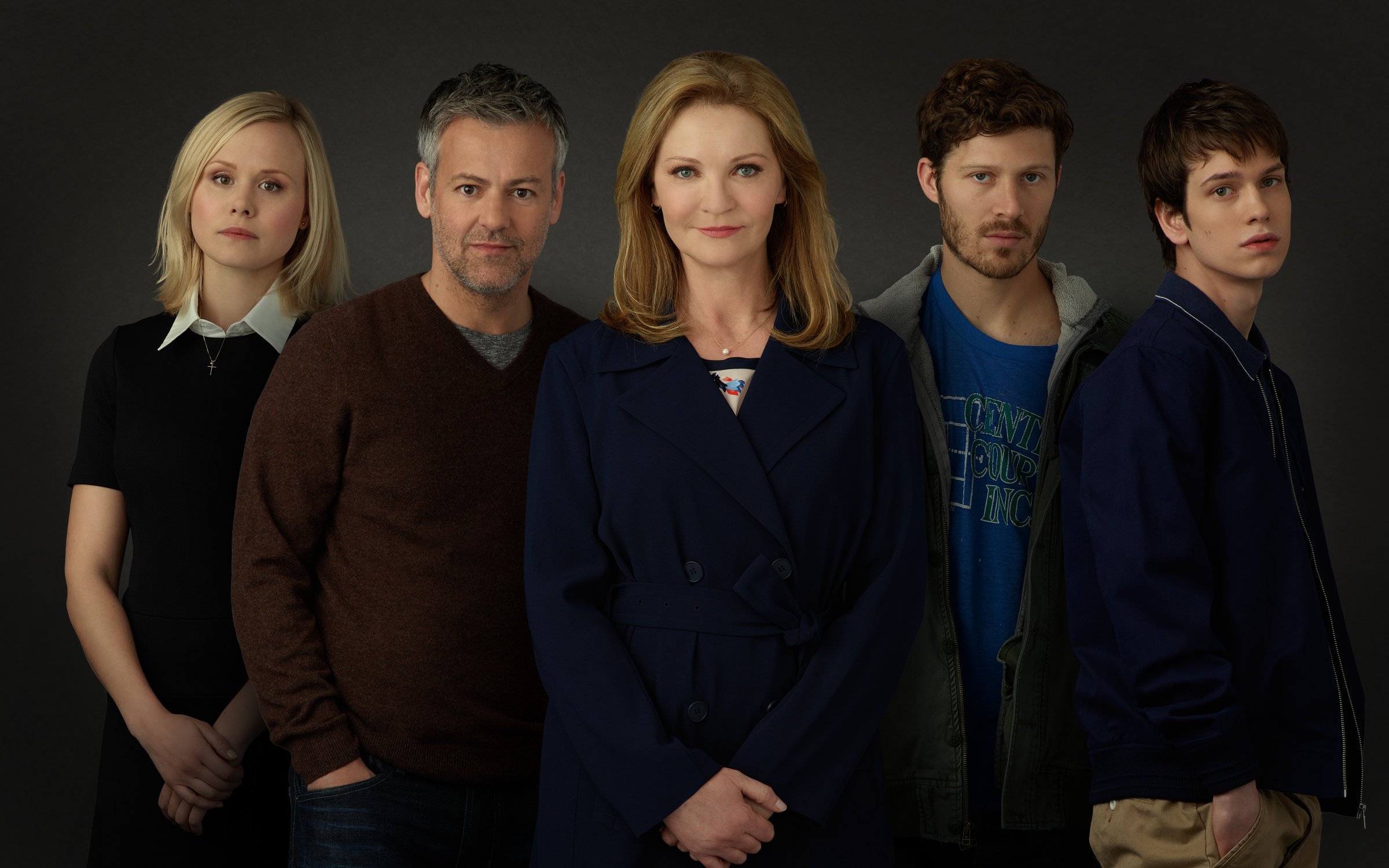
Recently, ABC’s head of entertainment, Paul Lee, was ousted—reportedly in part because of his commitment to serialized dramas, the ones that build on their plot week after week. While ABC’s had success with shows like Scandal and Quantico, the network reportedly wanted their own procedural—a show like NCIS.
That makes The Family, which debuted Thursday night, likely part of a dying breed. The series, created by ShondaLand writer Jenna Bans, is the logical endpoint of serial drama: It combines a manipulative politician played by a stern movie actress, a cop whose job is her life, a journalist who uses her wiles to get stories, and a man convicted of a crime he didn’t commit (or did he?). It puts a variety of clichéd tropes from across the TV landscape into a blender and produces something you want to gulp, not sip.
The story of The Family cuts between the past and present: Ten years ago, small-time Maine politician Claire Warren (Joan Allen) lost her son Adam when, it was widely presumed, sex-offender neighbor Hank (Andrew McCarthy) killed him. In the intervening decade, that neighbor was sent to jail, while Claire got elected mayor. The dysfunction in the Warren family only picks up when a young man who claims to be Adam walks into a police precinct.
Adam’s past decade might have been something like Room (in which Allen, a great and underused actress, also appeared as the mother of a freed kidnap victim). He certainly has the scars to prove it. But it might not have; if, as the show seems to want us to believe, the young man who walked into the precinct is an impostor, Adam may not have had a last ten years of life at all.
This mystery is one Claire won’t allow herself to probe; when her other son Danny (Zach Gilford) suggests that Adam may not be who he says he is, she very calmly and lovingly tells Danny that’s he’s an alcoholic and not to be believed. It’s a suavely assured shutdown, one that’s only matched by cop Nina Meyer (Margot Bingham) telling Claire, who’s crying as she thinks about her just-returned son, “Take a moment, and then shut it down.”
Brr! But for all the gratuitous iciness, The Family‘s characterizations push common clichés—the hard-driving politician, the emotionally remote cop, the creepy neighbor—one step beyond their easiest point. Claire feels guilty about neglecting her marriage and kids, though not so guilty that she’s unwilling to run for governor on the strength of her sudden burst of fame. Nina is emotionally cut-off because she blames herself for presuming Hank committed the murder, foreclosing other options for finding Adam. (She’s also annoyed at herself for having a years’-long affair with Claire’s husband!) As for Hank, McCarthy’s strangely soulful, enigmatic performance gives him a life onscreen that’s—fittingly given his status as a stand-in for misbegotten justice—more intriguing than “the creepy neighbor” tends to be.
All of this adds up, already, to the sort of show that’s not in ABC’s gameplan going forward. It makes sense from a potential-ratings perspective: The plot is just complicated enough to reward close attention, and if any element of it turns off a potential viewer—well, the series doesn’t refresh at the end of each episode, so that’ll be it for them!
But The Family‘s Grand Guignol aspects—its willingness to be not just a serial drama but the most serial drama—is something worth celebrating. Its sense, already, of potential madness is reminiscent of early Scandal, with one key difference. The characters on Scandal, existing within the rarefied world of D.C. politics and crisis management, lived outsized enough lives to truly allow anything to happen, minus consequences or reason. The Family relies on familiar, drab settings, and squeezes from them—and from Allen’s performance—real gravity and emotion. Perhaps the show’s biggest twist is that it has something on its mind.
More Must-Reads from TIME
- Cybersecurity Experts Are Sounding the Alarm on DOGE
- Meet the 2025 Women of the Year
- The Harsh Truth About Disability Inclusion
- Why Do More Young Adults Have Cancer?
- Colman Domingo Leads With Radical Love
- How to Get Better at Doing Things Alone
- Michelle Zauner Stares Down the Darkness
Contact us at letters@time.com